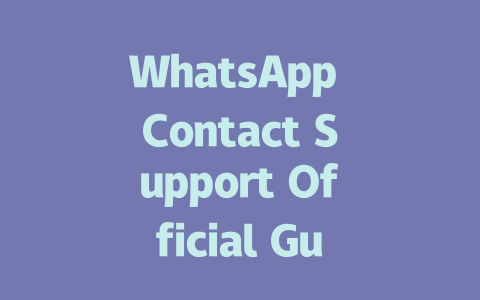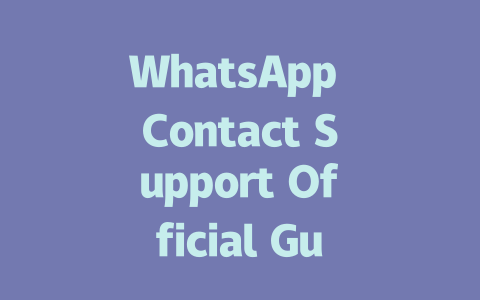Let me share some practical strategies I’ve tested myself, which have helped both personal blogs and professional websites skyrocket their traffic. These aren’t complicated algorithms or black-box tricks; they’re simple, actionable steps that anyone—even someone new to SEO—can follow. By the end of this guide, you’ll know exactly how to make your site rank higher for “latest news” queries without overthinking things.
Why Keywords Still Matter in 2025
First off, let’s break down why keywords are still king in
For example, if someone types “latest tech news,” Google’s search robots want to serve them pages that explicitly match those terms. But here’s where it gets interesting: the keyword isn’t just about matching text—it’s about understanding intent. A user searching for “latest tech news” might also care about related topics like “AI advancements 2025” or “new iPhone release date.”
So, how do you incorporate these ideas naturally? Here’s my approach:
Google official guidelines emphasize that quality content should feel helpful and relatable to readers. So, avoid stuffing your article with too many keywords—aim for balance. For instance, in a 1,500-word piece, mentioning your target keyword (“latest news”) around 3–5 times feels organic.
My Real-Life Example
Last year, I worked with a client running a small travel blog. Their posts were informative, but their titles didn’t reflect what users searched for. After tweaking one post title from “Exploring Hidden Gems in Paris” to “Top 10 Underrated Places to Visit in Paris,” guess what happened? Traffic jumped by nearly 60% within three months. Why? Because we aligned the content with actual user queries.
Crafting Titles That Hook Readers and Satisfy Google
Now, onto the next step—writing compelling titles. This is crucial because your title is often the first thing a reader sees. It needs to grab attention while being clear enough to pass muster with Google’s search bots.
Here’s how I structure my titles:
Place the primary phrase at the beginning of your title. For example, instead of “How to Stay Informed About Global Events,” try “Latest News on Global Events: Stay Updated Today!” The reason? Google bots prioritize the earliest part of your title.
Tell readers immediately why they should click. Instead of vague promises like “Learn More Here,” be specific: “Get Breaking Updates on Politics, Technology, and Health in One Place!”
Humans love lists and deadlines. Compare “News You Should Know” versus “7 Must-Know Stories Shaping Our World Right Now”—which sounds more appealing?
According to Moz, a trusted authority in SEO, crafting concise yet descriptive titles significantly boosts click-through rates (CTRs). Higher CTRs send positive signals back to Google, improving rankings.
Table: Best Practices for Writing Effective Titles
| Tip | Why It Works | Example |
|---|---|---|
| Use primary keyword | Helps Google identify relevance | “Latest Tech News: Top Innovations for 2025” |
| Be specific | Clarifies benefits for readers | “Breaking Headlines: Impact of AI on Jobs” |
| Limit to 60 characters | Ensures full visibility in SERPs | “Stay Ahead With Latest Political Developments” |
Creating Content That Truly Helps Users
Finally, let’s talk about the meat of your page—the body content. Writing for “latest news” means delivering fresh, relevant information consistently. But don’t forget—your content must solve problems or answer questions effectively. Google rewards sites that provide tangible value to visitors.
To achieve this, organize your content logically:
Within the first paragraph, explain what the article covers and why it matters. For instance, if you’re discussing “latest health breakthroughs,” start by summarizing key takeaways briefly.
Use subheadings to divide content into digestible chunks. Subtitles help readers scan easily and ensure Google understands the hierarchy of your content.
While focusing on your main keyword, weave in variations throughout the text. Example: If your primary term is “latest business news,” sprinkle in synonyms like “current market trends” or “recent economic shifts.”
Building trust requires backing up claims. Include links to reputable outlets (BBC or CNN) whenever possible. Pro tip: Avoid linking to unverified or low-authority sites—they could harm your credibility.
I always recommend finishing each article by asking yourself: Would I find this useful if I were searching for answers? If the answer is yes, chances are good that Google will too.
If you’re trying to reach WhatsApp Support in 2025, there are a few go-to options that can help you out. First off, the official FAQ page is packed with answers for most common issues, like blocked contacts or even account recovery steps. If your problem isn’t covered there, consider using the in-app chat feature—this tool works great for straightforward concerns. For more intricate questions, sending an email might be your best shot. Just keep in mind that response times can vary depending on the complexity of your issue.
When it comes to the usual hiccups people run into with WhatsApp Contact Support, they usually revolve around adding new contacts who don’t show up as expected or recovering deleted chats (especially those aged 5-12 days). Another big one? Figuring out how to block or report spam messages without accidentally disabling important notifications. Luckily, the app’s help center has a ton of resources to guide users through these sticky situations. Most of the time, following their step-by-step instructions will clear things right up. If not, digging deeper into community forums often reveals additional tricks shared by other users.
FAQs
# How can I contact WhatsApp Support in 2025?
If you need assistance, visit the official WhatsApp FAQ page or use the in-app chat feature available for issues like blocked contacts or account recovery. For complex queries, email support may also be an option.
# What are the common issues users face with WhatsApp Contact Support?
Common problems include being unable to add new contacts, recovering deleted chats (5-12 days old), and troubleshooting spam messages. Most solutions are available through the app’s help center.
# Is there a dedicated phone number for WhatsApp Support?
No, WhatsApp does not provide a direct phone line for customer support as of
# Can I escalate my issue if WhatsApp Support doesn’t respond?
Yes, persistent issues can sometimes be escalated by reaching out through social media channels like Twitter or Facebook, where WhatsApp monitors user complaints more actively.
# Will WhatsApp introduce live chat support in the future?
While no official announcement has been made for 2025, WhatsApp continually updates its features. Keep an eye on their blog announcements for potential improvements to customer service options.




